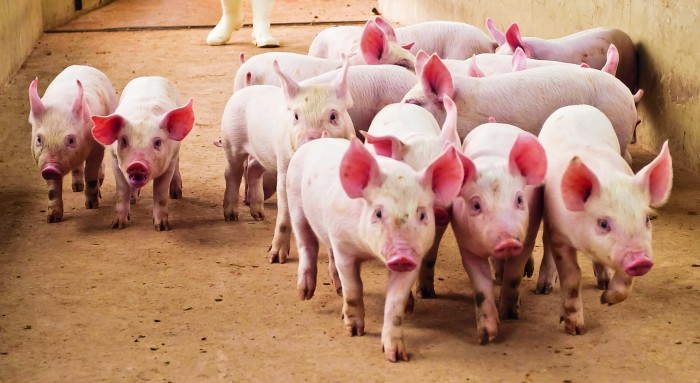Cranswick is facing significant opposition from locals at the proposed construction of a large pig and poultry farm in rural Norfolk.
Hundreds of people in the villages of Methwold and Feltwell have objected to the company’s plans to build a site to rear millions of pigs and chickens.
According to local news, Cranswick has said the site will be ‘a sustainable, modern farm’ which will create local jobs and deliver affordable food. But campaigners against the plans have issued concerns about potential increases in traffic on surrounding roads. Other concerns include fears about pollution, carbon emissions and animal welfare.
A campaign group, Cranswick Objection Group, has been set up to lobby against the proposals. Shirley De’Ath, who launched the group, said: “There is absolute uproar from local people who are objecting daily to this. We are a rural community with roads already plagued with never-ending potholes and the infrastructure will not be able to cope with the huge increase in lorries.”
She added: “It is a disaster waiting to happen. There are already issues at much smaller farms in the county that have faced constant bad smells, flies and poor air quality.”
The plans submitted to West Norfolk Council include 20 sheds housing 870,000 chickens and 14 buildings for 14,000 pigs on land that is currently used for pig farming. The development would see a significant expansion to the site.
A Cranswick spokesperson said: “We are currently in the early stages of planning applications to redevelop and upgrade the existing pig accommodation at Methwold and Feltwell. In addition, the application includes building a modern, sustainable chicken farm.
“We are working on the detailed plans for the site, considering the impact on traffic and the local environment, with all the relevant authorities. The final plans will be completed for submission by the end of September.”
Criticism for the proposals has come from local farmers as well as a district councillor, who expressed particular concerns about the sustainability of the project: “The site will generate 10,000 HGV movements a year, with food likely to come from mills owned by the applicant in Suffolk, and the animals produced will be slaughtered in Eye (Suffolk) and Watton (Norfolk),” said Alun Ryves, district councillor for Methwold. “Additionally, we must consider the huge energy and water requirements of the site, and the fact that much of the foodstuff is human-grade soya imported from Brazil. The carbon footprint of this beast will be extraordinary, and that excludes the building site.”
Although Cranswick have yet to comment on some of the broader concerns, an NFU East Anglia spokesman said: “British farmers produce affordable food, to some of the highest animal welfare and environmental standards in the world. They also adhere to strict production and biosecurity standards, with the majority of farmers going above the legal requirements as part of assurance schemes.
“The health and welfare of livestock and animal husbandry is a priority in all farming systems and good stockmanship is at the heart of what farmers do. Farm size and system are not themselves measures of good animal welfare.”




